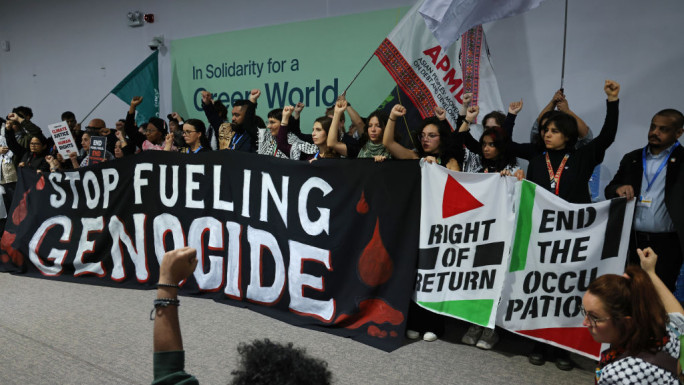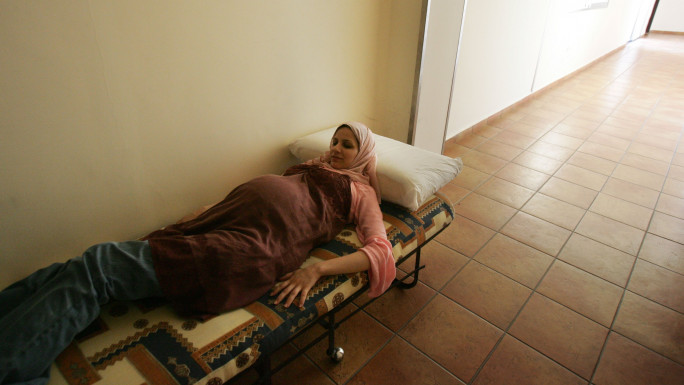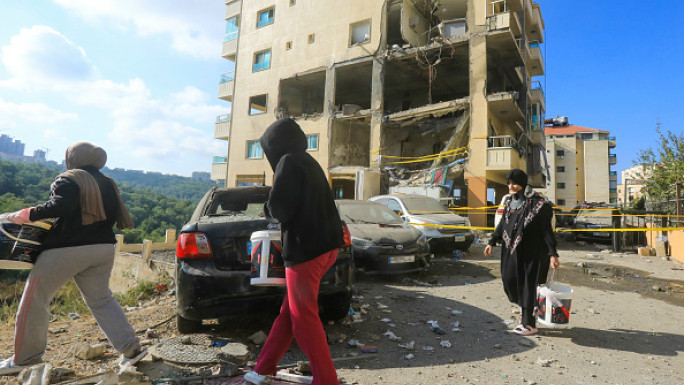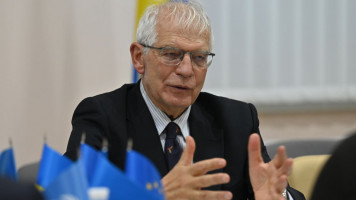Russia expected to veto UN vote seeking to authorise cross-border Syria aid
Russia expected to veto UN vote seeking to authorise cross-border Syria aid
Aid groups are urging Russia to rethink its position, as Syria cracks under the pressure of its civil war.
3 min read
A view of unhealthy living conditions in a refugee camp [Getty]
The United Nations is expected to vote to authorise cross-border aid in Syria, but with Russia expected to block the move with its veto, in support of Bashar al-Assad's regime which also opposes the plan.
The vote could end cross-border aid to Syria at a crucial time, when the coronavirus crisis threatens to kill thousands of vulnerable refugees.
UN humanitarian agencies' mandate to conduct cross-border aid operations into northwest Syria expires on 10 July.
The mandate allows UN agencies to deliver aid without the permission of the Assad regime, which has repeatedly blocked humanitarian supllies from reaching Kurdish-and opposition-held areas.
Russia has made its position clear. In December 2019 it joined China in using its veto to block the renewal of the full cross-border mandate for the first time since it was adopted in 2014.
A compromise had been brokered which allowed UN agencies the use of two out of the four original border crossings, with a reduced mandate term of six months – down from one year.
The vote closed the Yarubiyah crossing in Iraq, which is where some 40 percent of northeast’s medical provisions were supplied.
The closure of the crossing in January means that supplies are reaching merely 31 percent of the medical facilities previously served, the UN says.
The upcoming vote will likely further erode the UN mandate, with Russia expected to block one of the northwest border crossings and offer another to remain open for just six months.
Sources say the Russian delegation will push for the removal of the Bab al-Salam crossing at the Turkish border.
Russia, according to Relief Web, has expressed its intention to dismantle the cross-border mechanism by the end of 2020.
|
This would close the main aid channels into the country, and put the lives of millions of civilians at risk, who are already living in extreme poverty.
Russia has in the past defended its position by arguing that aid should reach civilians through Damascus. This is problematic as the regime only supplies aid to areas under its control.
Aid groups are appealing to the UN to keep the cross-border aid delivery open even if Russia vetoes the resolution.
The Syrian Network for Human Rights released a report appealing to the United Nations.
"The past nine years have witnessed the most horrific cases in modern history of the Syrian regime blatantly preventing the entry of humanitarian aid into the internally besieged areas, in violation of customary international humanitarian law, with the regime using a starvation strategy that amounts to a form of collective punishment," the rights groups wrote.
"The Syrian regime’s objection to cross-border aid delivery has no legitimacy or value, but is rather an unjustly arbitrary objection, which aims to obtain funds for the regime itself at the expense of the suffering of the displaced people."
The report goes on to say the closure of Yarubiyah "has caused horrific additional sufferings in three Syrian governorates, namely Deir az-Zour, Hassakeh, and Raqqa, which houses hundreds of thousands of displaced people alongside its original residents".
"The Syrian and Russian regime have not only displaced millions of Syrians, but also seek to steal and plunder current and prospective UN aid shipments intended to relieve these suffering people and protect them from disease and death."






 Follow the Middle East's top stories in English at The New Arab on Google News
Follow the Middle East's top stories in English at The New Arab on Google News
![Gazans reel after Israel strike [Getty]](/sites/default/files/styles/image_330x185/public/2183300682.jpeg?h=a5f2f23a&itok=fN-GAQGE)

